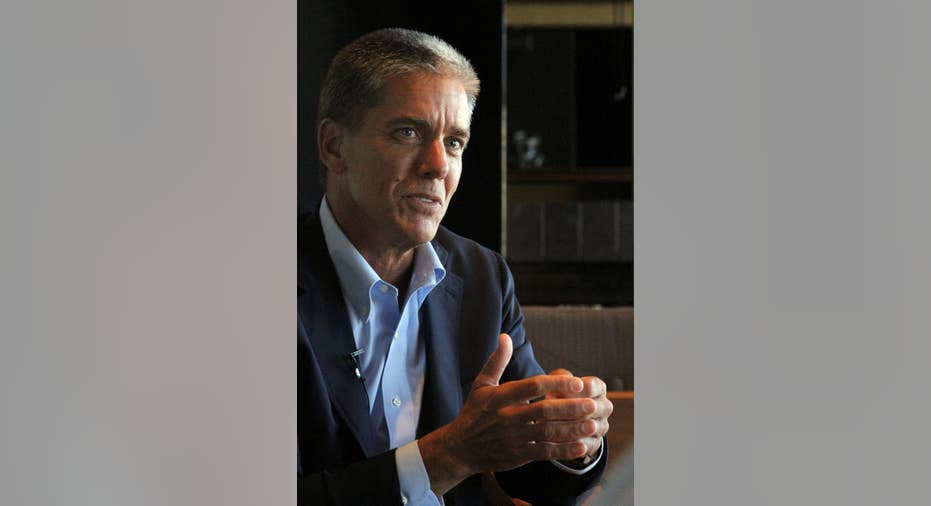Shell Oil president reports progress in Arctic offshore drilling off Alaska's northwest coast

ANCHORAGE, Alaska – The president of Shell Oil Co. said Tuesday exploratory drilling off Alaska's northwest coast is going well despite stormy weather last week that caused the company to halt operations for a few days.
And in an interview with The Associated Press Marvin Odum said he expects further protests against the company's plans for Arctic drilling like the ones in Seattle and Portland where activists in kayaks tried to block Shell vessels.
Arctic offshore drilling is bitterly opposed by environmental groups that say a spill cannot be cleaned in ice-choked waters and that industrial activity will harm polar bears, walrus and ice seals already harmed by diminished sea ice.
In Seattle, Shell faced protests on the water by "kayaktivists" upset over the company staging equipment in the city. In Portland, Oregon, Greenpeace USA protesters hung from the St. Johns Bridge to delay a Shell support vessel, from heading to the Arctic.
"I think the right assumptions for me to make are, it's not going to go away," Odum said. "We saw quite a bit of very public opposition when we were in the Pacific Northwest."
Odum said he's "110 percent ready" to work with people who want to find ways to improve drilling.
"I do have an issue with those that oppose who use illegal means or put the safety of themselves or the safety of anybody associated with this operation at risk," he said.
Odum said good progress is being made on the first well off Alaska's northwest coast.
"We had a few days in the last week where we couldn't operate because of the weather," he said. "Now we're coming out of that and it looks like we're moving into a time period of good weather."
President Barack Obama this week is in Alaska rallying support for measures to combat climate change, such as limits on carbon emissions.
Odum is staying in the same hotel as the president - the Hotel Captain Cook.
While environmentalists praise the president for curbing greenhouse gases, they pillory him for granting Shell permission to drill in the Chukchi Sea for the first time in 24 years.
The U.S. Geological Survey estimates the Chukchi and Beaufort seas hold 26 billion barrels of recoverable oil.
Oil will continue to be needed as the United States transitions to more renewable energy, Odum said.
"Oil will be required for a long time," Odum said. "Let's take a really close look at developing our own resources, control how it's done and get all the benefits that go along with it."
Shell in two years of exploratory drilling and with up to six wells hopes to confirm a vast reservoir of oil. If it's found, Shell could apply for production permits and move oil by undersea pipe to the Alaska shore and then overland across northern Alaska to the trans-Alaska pipeline. That could take more than a decade.
Odum is confident exploration can be done safely, and the overriding factor dictating whether Shell completes an exploratory well this year will be safety.
Shell is operating under strict Arctic rules put in place after the Deepwater Horizon disaster in the Gulf of Mexico. Arctic offshore drilling has been scrutinized in the courts in lawsuits brought by drilling opponents, Odum said.
"It's probably fair to say, this is the most scrutinized, analyzed project — oil and gas project — probably anywhere in the world. I'm actually sure of that," he said.
All the scrutiny, along with Shell's own internal review, have gone into safety considerations. It's in the company's best interest, he said.
"We can't afford to have a problem here," Odum said.



















